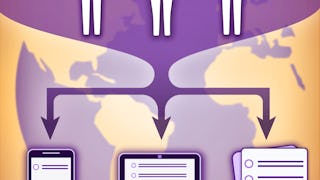Welcome to the Community Engagement in Population Health course! As you will learn, the health system is in the midst of a critical transition. The current system is not sustainable with escalating costs, mediocre health outcomes, and unacceptable disparities. This course will first discuss the current system, including definitions of population health and social determinants of health, and how the US compares to other countries on the triple aim –lower cost, better care, and a healthier population. Section 2 will review resources for both population health data and evidence-based public health interventions. Now more than ever, hospitals are addressing community needs through community benefits spending, community health improvement planning, and problem-based research networks. In the final section, the course describes community engagement in practical terms with a discussion of benefits and barriers. Community-based participatory research is presented as an effective way to engage the community in developing solutions to address problems in the health system.

Profitez d'une croissance illimitée avec un an de Coursera Plus pour 199 $ (régulièrement 399 $). Économisez maintenant.

Community Engagement in Research and Population Health

Instructeur : Theresa Green
1 534 déjà inscrits
Inclus avec
Ce que vous apprendrez
Students will be able to describe the current healthcare system in the United States.
Students will be able to summarize resources for both population health data and evidence-based public health interventions.
Students will be able to explain the role of community engagement, including community-based participatory research, in our health system.
Compétences que vous acquerrez
- Catégorie : Public Health
- Catégorie : Data Collection
- Catégorie : Health Equity
- Catégorie : Community Outreach
- Catégorie : Community Health
- Catégorie : Health Disparities
- Catégorie : Research
- Catégorie : Health Systems
- Catégorie : Public Health and Disease Prevention
- Catégorie : Program Evaluation
- Catégorie : Social Determinants Of Health
Détails à connaître

Ajouter à votre profil LinkedIn
10 devoirs
Découvrez comment les employés des entreprises prestigieuses maîtrisent des compétences recherchées

Il y a 4 modules dans ce cours
Establishing the Need for a New Paradigm -- The current US health care system is broken. In this introductory section, we will explore how the United States compares to other health systems in the world on both cost and health outcomes. We will discuss what is meant by good health, as well as defining the term “population health”. We will discuss what is meant by the American health paradox and how our country’s values have led to social inequities which contribute to substantial health disparities. The current US health system is not sustainable, and solutions can be discovered when we look outside of the health care delivery system for answers.
Inclus
11 vidéos12 lectures2 devoirs1 sujet de discussion
Creating change requires an understanding of population health data. We will begin this section by reviewing data resources, including resources for mapping data to create a visual representation of population health outcomes. We will also discuss some of the ways this data is collected by reviewing public health surveys and common data collection tools. Improving the health system often involves implementing interventions, and just like in medicine, public health interventions should be evidence-based. We will review some resources for evidence-based community health interventions and discuss ways to evaluated and disseminate results that are useful to community members.
Inclus
8 vidéos10 lectures3 devoirs2 sujets de discussion
Engaging the community is important in changing the paradigm and working to improve the US health system as a whole. In this section, we will explore ways in which health care delivery systems are engaging community and addressing community health. This community engagement is federally mandated for non-profit hospitals and health systems through community benefit reporting and community health needs assessments and improvement plans. In addition, the movement towards value based medicine has really motivated health systems to think beyond the walls of the hospital to explore the population’s health.
Inclus
4 vidéos7 lectures1 devoir1 sujet de discussion
In this section, we will define community-engaged research and apply the principles of effective community engagement to research as well as interventions. Community Engagement takes many forms, some much more reciprocal and collaborative than others. In this interactive discussion, our speakers will discuss the benefits of effective community engagement as well as barriers that are common, and suggestions for alleviating those challenges.
Inclus
9 vidéos7 lectures4 devoirs2 sujets de discussion
Instructeur

Offert par
En savoir plus sur Public Health
 Statut : Essai gratuit
Statut : Essai gratuitUniversity of Michigan
 Statut : Gratuit
Statut : GratuitJohns Hopkins University
 Statut : Gratuit
Statut : GratuitJohns Hopkins University
 Statut : Essai gratuit
Statut : Essai gratuitJohns Hopkins University
Pour quelles raisons les étudiants sur Coursera nous choisissent-ils pour leur carrière ?




Foire Aux Questions
To access the course materials, assignments and to earn a Certificate, you will need to purchase the Certificate experience when you enroll in a course. You can try a Free Trial instead, or apply for Financial Aid. The course may offer 'Full Course, No Certificate' instead. This option lets you see all course materials, submit required assessments, and get a final grade. This also means that you will not be able to purchase a Certificate experience.
When you purchase a Certificate you get access to all course materials, including graded assignments. Upon completing the course, your electronic Certificate will be added to your Accomplishments page - from there, you can print your Certificate or add it to your LinkedIn profile.
Yes. In select learning programs, you can apply for financial aid or a scholarship if you can’t afford the enrollment fee. If fin aid or scholarship is available for your learning program selection, you’ll find a link to apply on the description page.
Plus de questions
Aide financière disponible,





